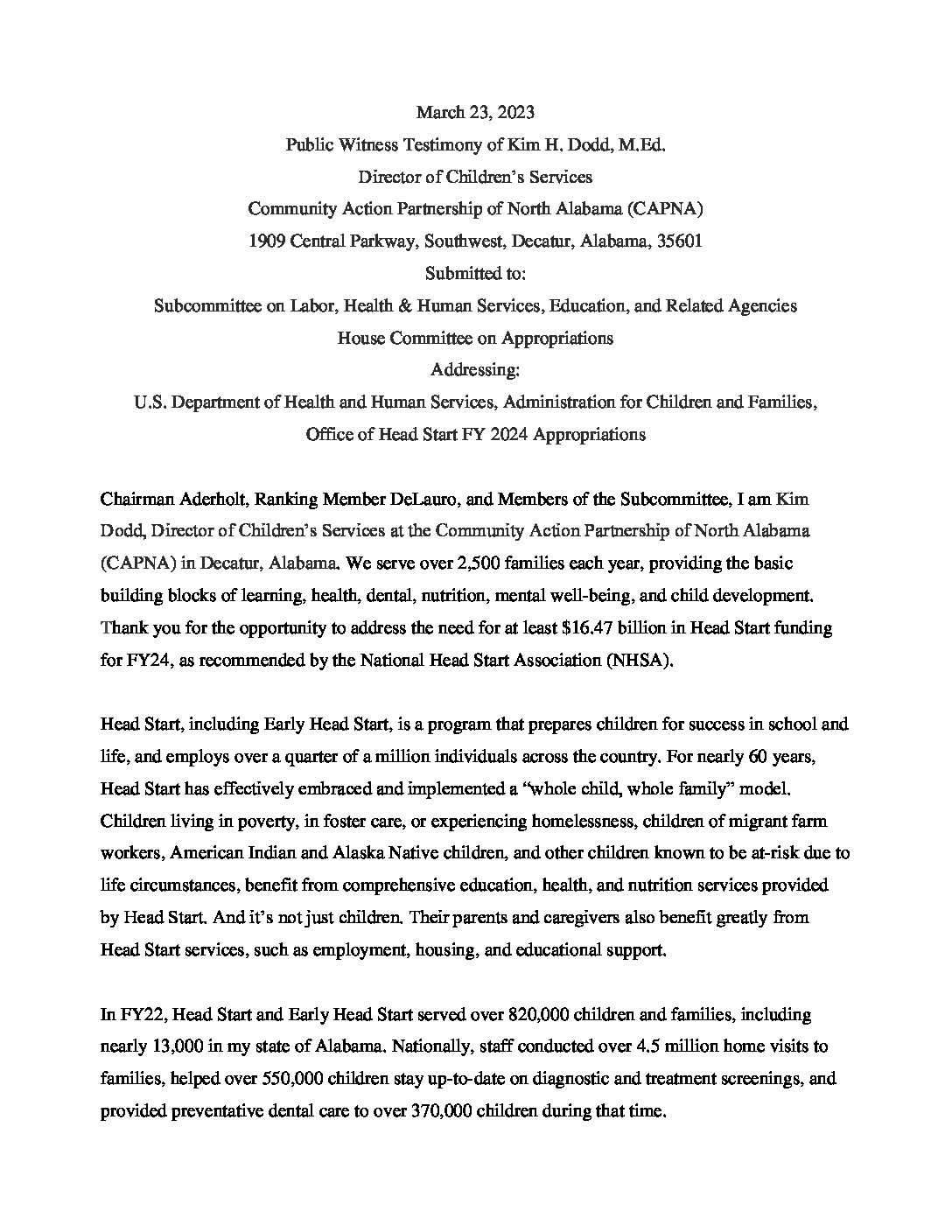Public Witness Testimony: Kim Dodd to the House Committee on Appropriations
On March 23, 2023, Director of Children’s Services Community Action Partnership of North Alabama (CAPNA) Kim Dodd submitted Public Witness Testimony to the House Committee on Appropriations’ Subcommittee on Labor, Health & Human Services, Education, and Related Agencies addressing the need for at least $16.47 billion in Head Start funding for FY24.
From her testimony: “The House Appropriations Committee has shown bipartisan support for Head Start and Early Head Start because of its proven, federal-to-local track record of serving children and families. CAPNA and the entire Head Start community appreciates the Subcommittee’s continued commitment to providing annual cost of living adjustments for our staff. But that is not enough. Barriers to access, severe staffing shortages, limited mental health resources, and aging and subpar facility space all stand in the way of providing pregnant women, infants, toddlers, and preschoolers a path to success in school and life on par with their more advantaged peers.”
With all this in mind, we are thankful that the President called for an increase in Head Start funding of over a billion dollars in his recently released FY24 budget. And we are further thankful that his budget specifically called for $575 million to improve compensation for Head Start workers. But, as I noted earlier, that is not enough. That would represent a 4.8% across the board wage increase, doing little to close the gap between Head Start teachers and those with similar qualifications in school district positions.
Instead, NHSA is recommending total funding of $16.47 billion for FY24 – primarily to address the workforce crisis – with three primary goals:
- Keeping Head Start open: NHSA estimates a year-long continuing resolution for FY24 – when factoring in today’s inflation rate of 6.4% – would result in over 49,000 fewer children served. A more drastic 28% budget reduction would result in the closure of hundreds of programs, many in rural areas or child care deserts, and over 265,000 children losing access to high-quality early learning.
- Lifting children, families, and communities out of a cycle of poverty: The Head Start model
is proven to be a wise investment that delivers for taxpayers. A study published in December 2022 in the Journal of Political Economy concluded that Head Start children (and their children as well) have higher educational attainment, lower teen pregnancy, and less criminal engagement on average. These findings complement other research concluding that Head Start benefits the children it serves. Building on that success, it’s essential that we continue to invest in Head Start’s proven, crisis-tested work that unlocks the doors to opportunity for children and families across our great nation. - Maximizing Head Start’s effectiveness: This increased investment will sustain and support the Head Start workforce; provide flexibility to address local quality improvement priorities; address the epidemic of childhood trauma; and restore critical purchasing power while addressing deferred maintenance issues and facility constraints.

